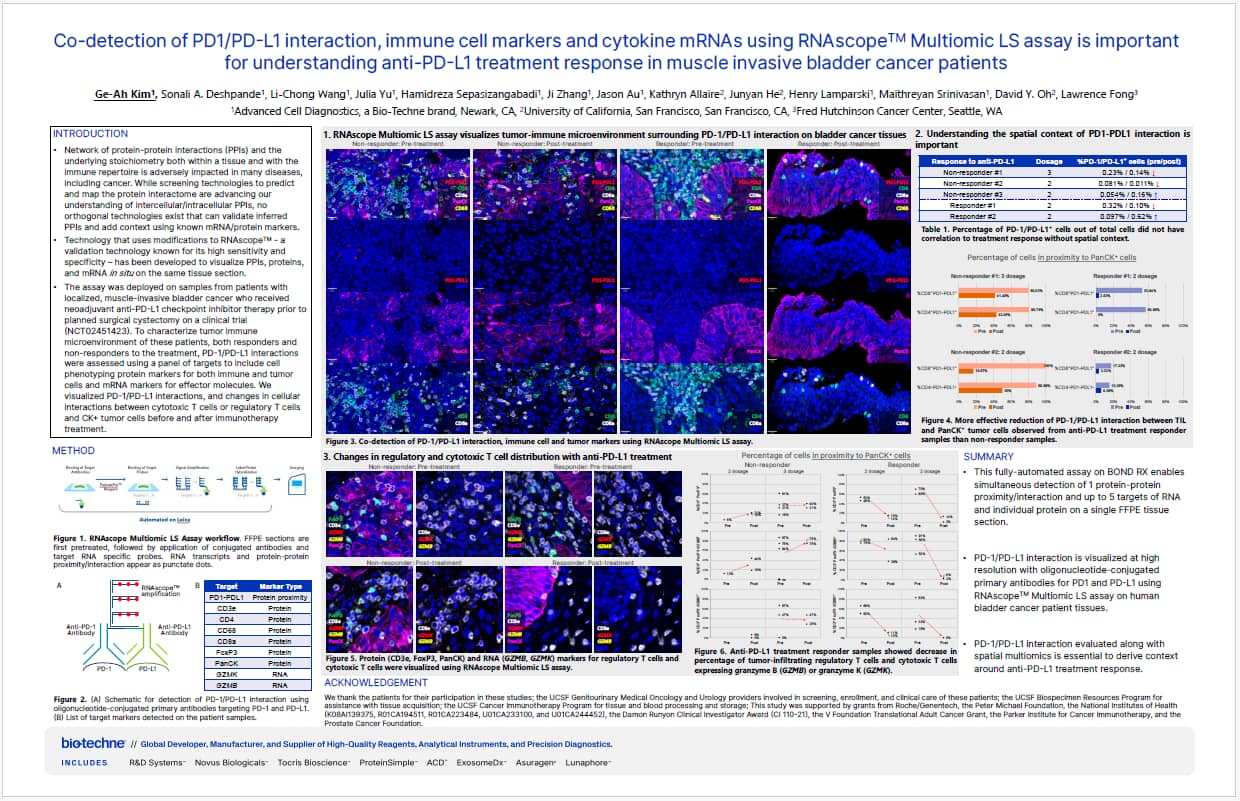Summary

Network of protein-protein interactions (PPIs) and the underlying stoichiometry both within a tissue and with the immune repertoire is adversely impacted in many diseases, including cancer. While screening technologies to predict and map the protein interactome are advancing our understanding of intercellular/intracellular PPIs, no orthogonal technologies exist that can validate inferred PPIs and add context using known mRNA/protein markers.
Technology that uses modifications to RNAscope™ - a validation technology known for its high sensitivity and specificity – has been developed to visualize PPIs, proteins, and mRNA in situ on the same tissue section.
The assay was deployed on samples from patients with localized, muscle-invasive bladder cancer who received neoadjuvant anti-PD-L1 checkpoint inhibitor therapy prior to planned surgical cystectomy on a clinical trial (NCT02451423). To characterize tumor immune microenvironment of these patients, both responders and non-responders to the treatment, PD-1/PD-L1 interactions were assessed using a panel of targets to include cell phenotyping protein markers for both immune and tumor cells and mRNA markers for effector molecules. We visualized PD-1/PD-L1 interactions, and changes in cellular interactions between cytotoxic T cells or regulatory T cells and CK+ tumor cells before and after immunotherapy treatment.
This poster was presented at the AACR 2025 meeting.
Request Literature
To access this literature content please fill out the form below.